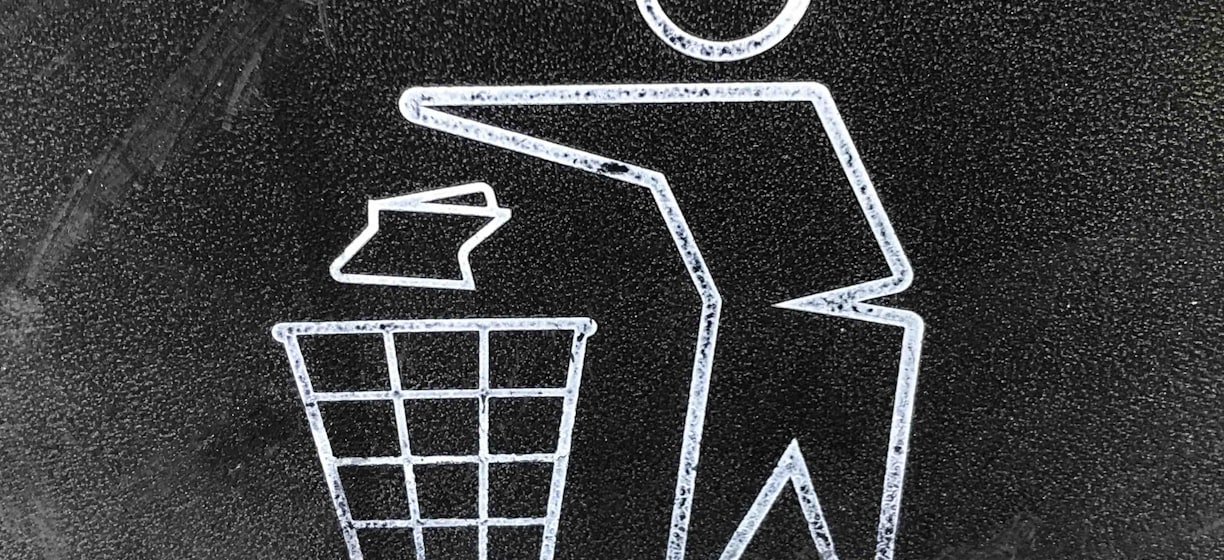

Where are the thrash cans?
About rubbish in Japan
How some European streets look like is something we all know. There are places that are more or less well-kept, but the sight of cans, wrappers, or cigarette butts in the gutter is not that uncommon. However, things are changing – each of us has probably heard about recycling, enforced by many municipalities (in more or less effective ways). Sometimes, practically every bench is accompanied by a trash bin. Unfortunately, it's true that people learn slowly; some prefer to throw a wrapper on the sidewalk rather than make the effort to walk a few meters. But how does the situation look in Japan? It’s different. But let’s take it step by step...
My first days in Japan (not counting quarantine) coincided with Golden Week – a combination of holidays creating a long five-day weekend (I'll write more about Golden Week on another occasion). Instead of diving into work, I had time to enjoy the walks around the local area. I noticed that the streets are exceptionally clean. Initially I mistakenly attributed this to the holiday period. In the following weeks, as I explored some other corners of the city, I realized that this state was the default. Trash is virtually invisible. Even smaller, less representative alleys are usually really clean! However, what is most surprising is... the lack of trash bins. How do the streets stay so clean when there is nowhere to throw the garbage?
The Japanese people are taught to take their trash with them and dispose of it in their own home bins. This is why ther are no bins. Unfortunately, this is one of those things that is not so well known by foreigners, so naturally also I got suprised. Once I wanted to throw away used wrapper. I spent quite some time searching for a bin before I resignedly stuffed the wrapper into my pocket and threw it away at home. Fortunately, the lack of bins I mentioned above pertains only to general-use bins. Bins for plastic bottles and cans are widely available, usually standing right next to vending machines.
Japanese people do care a lot for the common areas, such as parks, squares, and sidewalks. I had the opportunity to witness this one day when I saw a mother with a baby in a stroller during a walk. At one point, the woman stopped and pulled out a telescopic stick from one of the stroller’s pockets, onto which she skewered a wrapper that had been blown by the wind. She put the trash into a plastic bag and continued on her way... I was surprised. I had never seen a similar situation in Poland. I was amazed that people here clean up not only after themselves but also after others, even if it is not their responsibility. Examples of this behavior have also been noted during major sporting events! For instance, during the FIFA World Cup in 2018, Japanese fans cleaned the stands after the match against Colombia, while the players meticulously tidied up the locker room and even left a thank-you note!
Of course, the issue of littering doesn’t end with education. Just like in Poland, littering is punishable by a fine. In this case, 2000 円, which is about 70 PLN.


And what about recycling? At first glance, everything seems familiar. In Japan we sort the trash: plastic bottles, glass, cans... however, the difference lies in the division of the remaining waste into burnable trash (e.g., paper, food waste, unrecyclable plastic, rubber and leather products) and non-burnable trash (e.g., glass, porcelain, metal items, etc.). Why exactly this way? It results from the fact that Japan is an island with very limited space that cannot be wasted on extensive landfills...
Of course, the sorting methods presented above are not uniform – many cities have additional, more detailed sorting rules. Additionally, regulations regarding bulky waste are much stricter than in Poland. In the place where I live, one must notify the city office of intention of throwing away large items (e.g. wardrobe, desk), and provide the city with the exact dimensions of the item. Only then can item can be disposed of, on a specific day and in a designated place.
What might concern foreigners living in Japan, is the hurtful stereotype that gaijins (外人、foreigner) do not know how to sort their trash correctly. It is not uncommon to be accused of breaking sorting rules... However, looking at some european cities, I can’t say I’m surprised. Moreover, the number of foreigners living in Japan is very small. So Japanese people have more interactions with tourists (often Americans...) than with other types of gaijins. As it can be guessed: it is often tourists, unfamiliar with local customs, who dispose of trash anywhere they see fit.
The topic of trash, although seemingly trivial, is very extensive. And while the described example of clean cities, the habit of cleaning, and taking care of one’s surroundings is certainly positive, there is also a dark side to it, which I will describe soon. See you, and remember that it's worth sorting your trash ;)